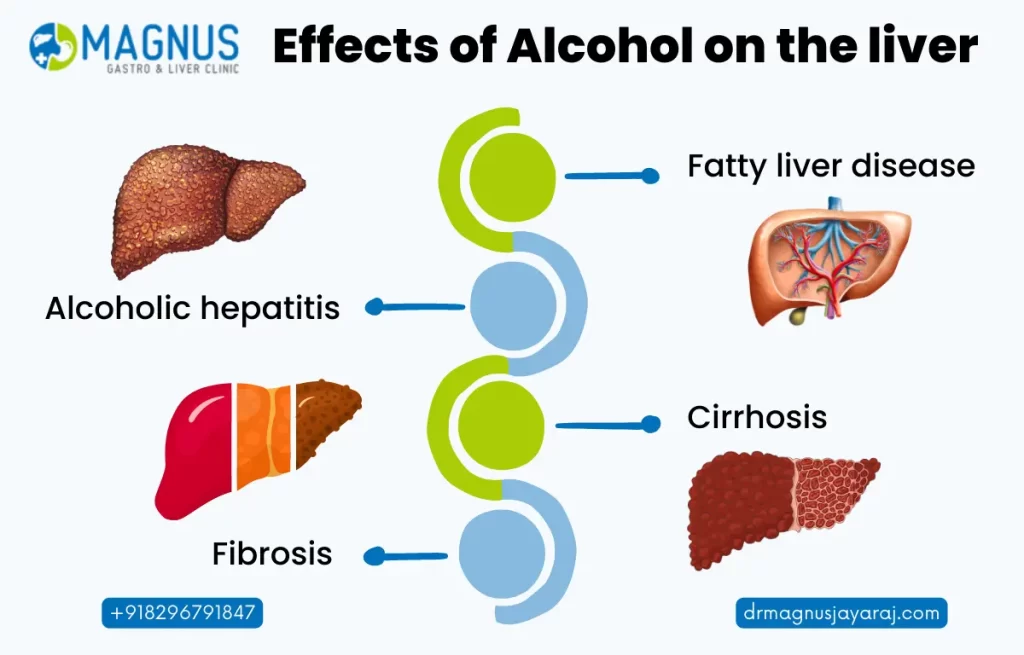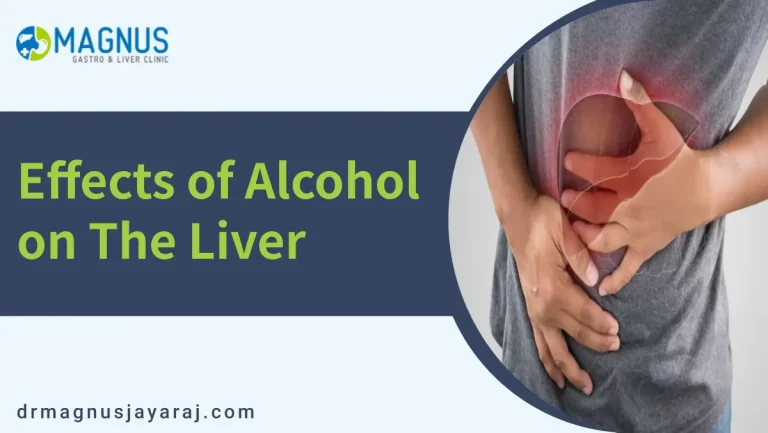Excessive alcohol consumption can have serious and even life-threatening consequences for your liver. Over time, heavy drinking can lead to a condition known as alcoholic liver disease, which can scar the organ and make it more difficult for it to perform its vital functions.
Effects of Alcohol on The Liver
Additionally, the effects of alcohol on the liver can cause inflammation and damage to the liver, leading to a condition known as alcoholic hepatitis. In extreme cases, consumption of too much alcohol can cause the liver to stop functioning altogether, leading to a potentially deadly condition known as liver failure. In this article, we will explore how alcohol affects your liver and the damage you can’t see.
Warning Signs of Alcohol-Related Liver Damage
The liver is the organ that is found on the upper right side of the abdomen, just under the ribs. It has various functions that are essential to your health, such as:
1. Breaking down drugs, alcohol, or, other potentially toxic substances.
2. Production of bile for helping the digestion of fats.
3. Storing nutrients in the form of glycogen, and certain types of vitamins.
4. Making proteins that are vital for blood clotting.
Various substances can cause liver damage. The effects of alcohol on the liver are one of the leading causes of liver damage. When you experience early signs of liver damage from alcohol, it’s called alcohol-related liver disease.

Early Signs of Liver Damage from Alcohol
The effects of alcohol on the liver at an initial stage can often have no symptoms. Because of this, you might not even know that you’ve experienced liver damage due to alcohol intake. It can lead to symptoms like
- Swelling of the liver.
- Abdominal pain.
- Fatigue.
- Loss of appetite.
- Nausea and vomiting.
- Unexplained weight loss.
What Happens to Your Liver by Drinking Too Much Alcohol?
If you consume large quantities of alcohol regularly over a period of time, you are putting yourself at risk for developing severe medical conditions that could permanently damage your body. Some of them include:
1. Fatty Liver: In this stage, fat builds up in your liver. This is usually a reversible condition.
2. Alcoholic Hepatitis: This is a more serious condition in which your liver becomes inflamed. This can lead to cirrhosis i.e. scarring of the liver.
3. Fibrosis: This is the formation of scar tissue in your liver.
4. Cirrhosis: The most advanced effects of alcohol on the liver are characterized by extensive scarring of the liver. At this stage, your liver may become hardened and you may experience symptoms such as fatigue, jaundice, and weight loss. If you reach this stage, you will likely need a liver transplant to live.
Treatment for Liver Disease
If you have effects of alcohol on the liver, the first step is to stop drinking. This can be a bit difficult, but there are many other resources available to help you quit. Treatment for liver disease may also include:
- Medications: If your liver disease is caused by hepatitis C, antiviral medications are prescribed by doctors to clear the virus and prevent further damage to your liver.
- Lifestyle Changes: Eating a healthy diet, maintaining a healthy weight, and exercising regularly can improve your liver health and reduce your risk of further damage.
- Surgery: In certain cases, surgery may be required to treat liver disease. Liver transplantation is an option for people with end-stage liver failure who do not respond to medical treatment.
Types of liver disease
- Hepatitis
- Cirrhosis
- Non-alcoholic fatty liver disease (NAFLD)
- Autoimmune hepatitis
- Hemochromatosis
- Wilson’s disease
- Primary biliary cholangitis
- Primary sclerosing cholangitis
- Liver cancer
Prevention of Liver Disease
There are several things to do to overcome the effects of alcohol on the liver helps prevent liver disease if you drink alcohol. First, always drink in moderation because it is important to give your liver time to recover by abstaining from alcohol for a period of time. Secondly, it is important to eat a healthy diet, avoid fatty foods, do regular exercise, and avoid obesity. By following these simple tips, you can help prevent liver disease.
Conclusion
If you or someone you know is struggling with an alcohol problem or who has witnessed early signs of liver damage from alcohol intake, it’s important to get help as soon as possible in order to prevent any permanent damage from being done. Taking good care of your body will go a long way toward ensuring a healthy and fulfilling life!
Read also Best Laparoscopic Surgeon in Chennai.


